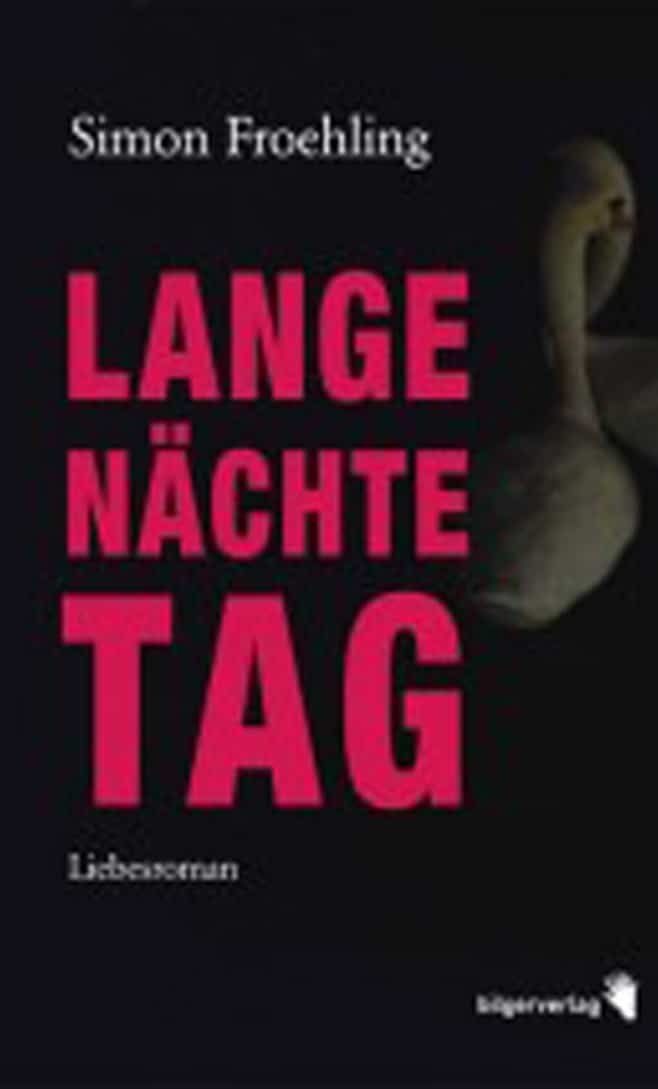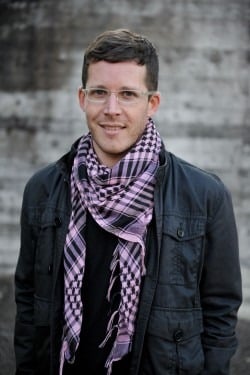The Swiss author Simon Froehling calls his first prose work "Lange Nächte Tag" a "romance novel". The book is the best literary publication about HIV in a long time. It revolves around relationships and time before of the infection.
Simon Froehling has done it. The Swiss playwright in his early 30s has written his first novel, "Lange Nächte Tag". It tells the story of how Patrick and Jirka fall in love, how Jirka becomes infected with HIV at a sex party that same night after their first time and how Patrick deals with it. "Lange Nächte Tag" is a brilliantly clever, incredibly tender and unsparing book that asks the right questions without always having the answers ready. Not for a long time has HIV and love between men been written about so well and so skilfully.
Simon, why is a successful playwright writing his first novel about unprotected sex between men and HIV?
For me, the book is primarily about the love between my two main characters, about the rapprochement and repulsion that happens between them. But sex and HIV are crucial to how this works.
How did you come up with that?
I started to look into the subject when I read an article about "bugchasers" and "poisongivers" in the American "Rolling Stone" in 2001. [Bugchasers" are people who deliberately infect themselves with HIV, "poisongivers" are those who pass the virus on to them, author's note] In the article, employees of the American AIDS service organisations said that this was a marginal phenomenon, that it only happened very rarely.
You dealt with it anyway ...
I found the material very exciting and first tried to adapt it for the theatre, although I actually knew from the beginning that prose was the right form. When I tried it, it went well and I quickly wrote the section that is now the end of the book and which I actually thought was the beginning.
It's about merging: Patrick tries to infect himself with HIV in order to be like Jirka. He wants to overcome the barriers between him and himself that have built up as a result of Jirka's HIV infection. Why is Patrick's possible infection now the end of the story and not the beginning?
Because I realised very quickly while writing that life with the virus has already been told. This has been dealt with very often in literature over the last 25 years. What I hadn't read yet was the confrontation with the topic that takes place before the infection, the reflection and the feelings that perhaps lead to an infection. Writing about HIV and AIDS has always meant writing about death. But today in Western Europe, HIV has become a chronic disease that you can live with for a long time. Writing about death was therefore no longer urgent for me.
The topic of HIV had almost disappeared from literature in the last ten years. Many of the authors have died.
Yes, but that's not the end of the discussion for men of my generation. As the mortal threat has almost disappeared, we have to find other ways of telling the story.
Away from the "literature of consternation", the reports of experiences, the literary farewell letters?
Yes, perhaps. The testimonials were very important and some of them are very good. But it's a bit like cancer: there's a lot of "cheer up" literature and very few really good books on how to deal with HIV.
You found a publisher for your book very quickly. Did that surprise you?
I didn't have to search at all. I'm no stranger to Switzerland as a playwright and when I said in an interview that I was working on a story about HIV, two publishers approached me very quickly and wanted to do the book. However, I had promised Ricco Bilger from Bilgerverlag for some time that I would give him my prose work first. He read it and wanted to do it straight away. And I'm also very happy to have a publisher like him who is so committed.
What are the reactions to the book?
It sells quite well and is generally well reviewed. The reactions at the readings are very different. I recently had a school class in the front rows and the boys giggled the whole time, but were also somehow disturbed. Gay men often feel recognised and think it's good. But I've also had 70-year-old women compliment me on my language and the text, while their husbands stood silently by.
(Interview: Paul Schulz)
Simon Froehling: Long Nights Day. Bilgerverlag, 21.80 euros












